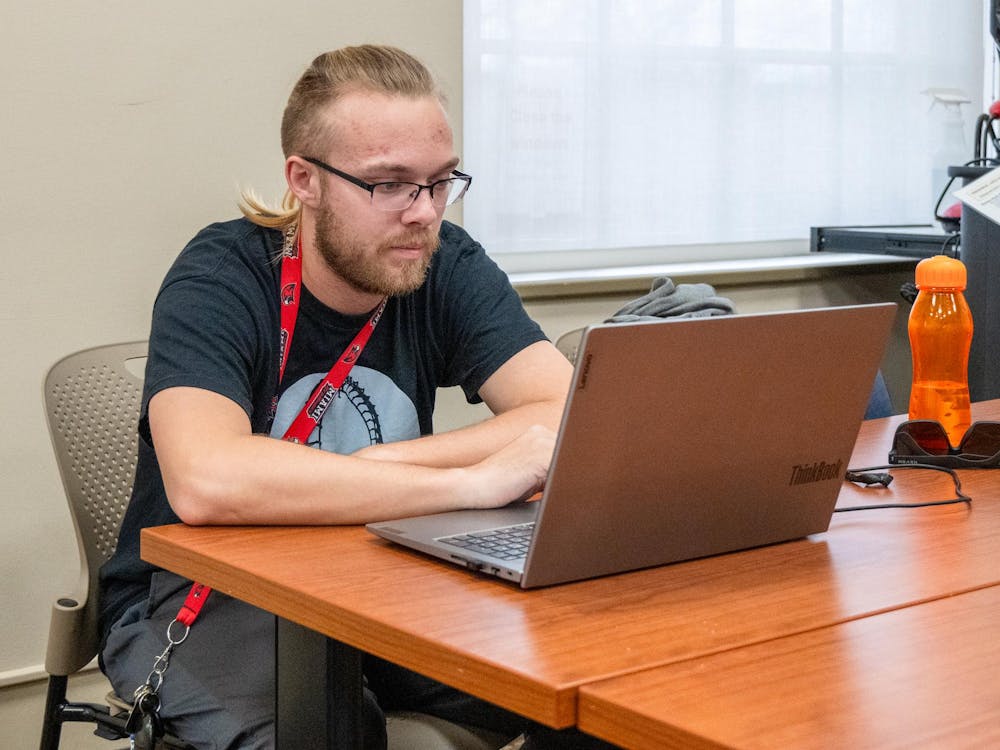The student claims innocence, says university violated his right to due process
A student suspended for violating Miami's Sexual Misconduct Policy has filed a lawsuit against the university, claiming that the school violated his right to due process.
A hearing in late April found the sophomore guilty of sexual assault for engaging in sexual conduct with a female student "on two occasions...without her knowingly being able to consent." He was suspended until May 2019 and banned from campus.
But the student, identified only as "John Doe" in the lawsuit, says the sexual encounter was consensual. He and his lawyer, Joshua Engel, argue the university's reputation for inadequately providing justice for victims of sexual assault has, in John Doe's case, caused injustice for the accused.
The lawsuit claims the university "presumed that John Doe was responsible in order to look good for the Department of Education and advocates."
According to the lawsuit, the incident occurred starting the evening of Thursday, November 17, 2016. John Doe and the alleged victim, referred to as "Jane Roe," met at 10 p.m. at an Uptown bar along with several other friends to celebrate a friend's birthday. They started drinking there and then went to a second bar, neither of which are named in the lawsuit.
"There was no plan to get drunk," the lawsuit states.
John Doe was flying to Washington, D.C. the following morning, and other people in the group had exams the next day. John Doe and Jane Roe left the second bar around midnight.
The two talked about "hooking up," and though Jane Roe said she did not want to have sex, she said they "could do other things," the lawsuit claims.
On the walk back through campus, they slipped into some bushes and started kissing. John Doe asked if he could perform oral sex on her, the lawsuit states, and she responded by moving forward and continuing to kiss John Doe, which the lawsuit claims indicated her consent.
John Doe then performed oral sex on her, and "she did not object," the lawsuit states.
Since John Doe's roommate was sleeping, they decided to go to a bathroom near his room. They continued to kiss in the elevator, the lawsuit says, and Jane Roe followed him into the bathroom. They decided to not have sex since they didn't have a condom, the lawsuit says, and Jane Roe performed oral sex on John Doe, which the lawsuit claims she did "voluntarily."
Enjoy what you're reading?
Signup for our newsletter
John Doe then walked Jane Roe back to her dorm room. At 1 a.m., the lawsuit states, he texted Jane Roe, "Are you ok??" and she responded, "No. I'm gonna be sick."
The lawsuit states that, the following Saturday, November 19, Jane Roe texted John Doe about the incident:
"That was fucked up. I'm absolutely disgusted...I was so drunk...You need to understand the gravity of your actions."
He responded by saying, "I'm so sorry -- I was hammered too and feel absolutely horrible."
According to the lawsuit, Jane Roe had been in a relationship with one of John Doe's friends, and that's why he regretted the sexual activity.
"Drunk people made horrible decisions and we made a horrible decision and I know apologizes [sic] can't do anything..." he also texted, states the lawsuit.
About five months later, Jane Roe reported to the university that John Doe had assaulted her. According to the lawsuit, she told the university, "I have witnesses that can confirm that his intent was to have sex with me by the end of the night..."
John Doe had bought her at least $28 of alcoholic beverages that night, she said, as part of that plan.
A notice from Miami's Office of Ethics & Student Conflict Resolution (OESCR), delivered to John Doe on April 5, summarizes Jane Roe's explanation of the incident. She described the sexual conduct as unwanted and not consensual:
"The OESCR is in receipt of a report from [Jane Roe.] Specifically, on November 17,
2016, you allegedly penetrated her with your fingers and performed unwanted oral sex
of [sic] her in an alleyway by Bishop Hall. You allegedly continued even when she showed
resistance. Furthermore, [Jane Roe] reported that she had to use the restroom and, as
she entered the restroom in Bishop Hall, you allegedly entered with her, holding her
head down to perform oral sex on you."
A Summary Suspension Hearing was held to determine if John Doe posed an immediate threat to the student body. Mike Curme, dean of students, who presided over the hearing, decided John Doe did not pose an immediate threat and allowed him to stay on campus during the hearing process.
On April 28, Miami held a hearing to determine if John Doe had violated the university's Sexual Misconduct Policy. John Doe and Jane Roe both appeared and testified at the hearing.
Jane Roe did not call any witnesses, but written statements from witnesses were provided to the Hearing Panel in a printed packet. The written statements from friends who had seen Jane Roe the night of the incident recall her slurring, stumbling and, at one point, sobbing.
According to the lawsuit, OESCR director Susan Vaughn, who presided over the hearing, said it "disadvantaged" everyone that the witnesses could not be questioned.
"So if we can't ask questions, I have to take this as fact," Vaughn said of the written statements.
John Doe called several witnesses. During the questioning, the witnesses confirmed that Jane Roe had been intoxicated the night of the incident, but they claimed she was not "severely intoxicated."
Miami's Sexual Misconduct Policy designates being "severely intoxicated due to alcohol or drugs, incapacitated, or unconscious" as an example of individual's inability to give consent. The lawsuit uses this phrasing repeatedly as a defense, claiming that, though Jane Roe was intoxicated, she was not so intoxicated that John Doe was violating the university's policy.
On May 1, John Doe was notified by letter that the Hearing Panel found him responsible of violating Miami's Sexual Misconduct Policy.
He was suspended from Miami through May 15, 2019 and is prohibited from earning credits from another institution. He is also not allowed to enter campus during the suspension.
The suit was filed on July 16, two days after Education Secretary Betsy DeVos announced she would be taking a hard look at the Title IX directives introduced by the Obama administration. Specifically, she's questioning whether or not those reforms have deprived students accused of sexual assault of their right to due process.
That's exactly what John Doe's lawsuit alleges.
"After years of criticism for being too lax on campus sexual assault, colleges and universities are relying on Title IX to crack down on alleged perpetrators," the lawsuit reads. "Unfortunately, this crackdown has gone too far."
University spokeswoman Claire Wagner said Miami is fair in its sexual assault investigations.
"Miami actively educates students and employees about their rights and options under Title IX," Wagner said. "The university investigates and adjudicates cases fully and fairly, following its Title IX Protocols."
The lawsuit also criticizes the standard of proof used by universities in cases of sexual assault: a preponderance of the evidence. Legally, that means a party is able to support with evidence that the party's version of events "more likely than not" occurred.
But advocates for sexual assault survivors have for years argued that criminal standards of proof like "clear and convincing evidence" and "beyond a reasonable doubt" require evidence that is nearly impossible for schools to get their hands on, making it much more difficult for perpetrators to be punished and putting a large evidentiary burden on the victim.
While schools cannot determine if an individual is guilty of a criminal sex offense, they are obligated to enforce sexual misconduct policies and comply with Title IX standards, which prohibit any form of sexual discrimination in an educational institution.
Engel, John Doe's lawyer, has spoken publicly about this topic. In 2014, he was a featured speaker at a Washington, D.C. symposium, "Representing Students Accused of Sexual Assault: Due Process, Tort, Contractual, and Title IX Considerations."
The lawsuit names five defendants: Miami University, OESCR director Susan Vaughn, economics professor Steven Elliot, vice president for student affairs Jayne Brownell and dean of students Mike Curme.
The full lawsuit is available online here.
Check miamistudent.net for more updates on this story.




